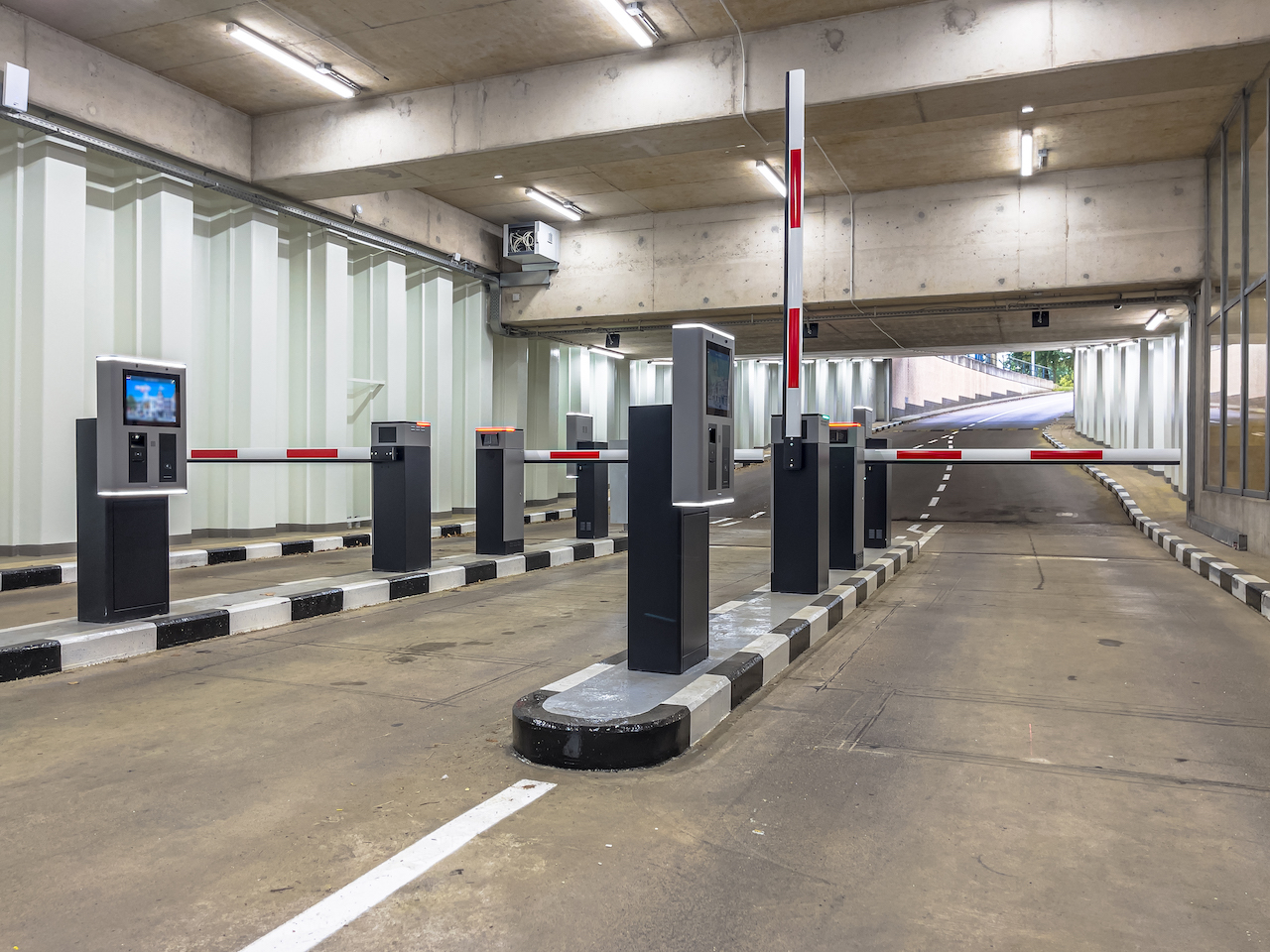Like it or not, most of our modern infrastructure is designed around automobiles. Singapore alone shall have almost a million vehicles on its roads by the end of 2023. So, if your business plans to have smooth operations over the coming years, it’s a good idea to account for the visitor’s and employees’ cars with parking management system.
A smart parking system can help you optimise the space available for parking, making the most of each spot and level. This guide will detail the various systems you can include with it and the benefits you can reap.
What Is a Smart Parking System?
An intelligent parking system builds upon an EPS (Electronic Parking System) through additional features that utilise modern computing concepts such as machine learning and data management. It allows you to avail yourself of several features, as you’ll find in later sections—most deal with increasing space efficiency, preventing congestion, and increasing security within the parking area.

What Are the Modern, Smart Components of Smart Parking Systems?
A modern parking management system can incorporate several features, depending upon the requirements of the concerned enterprise. You can find a few valuable ones detailed below.
Parking Management System With a Mobile App
Like most modern methodologies, everything works best when integrated into your smartphone. You can expect everyone to download a tiny app on their Apple or Android device, even temporarily, if that ensures a smoother parking experience. Still, you must ensure that the data remains secure and the app doesn’t violate their privacy.

Variable Message Signs
Also known as dynamic message signs, these devices cost more than a simple board but allow you to deliver immediate notifications to all the people approaching or exiting the parking lot. With a large enough array of sensors, you can feed information such as the number of available slots, present parking hazards, and areas closed off for construction. It can even notify people of real-time information, such as rain density and complex braking events.
Compliance Management System
Every enterprise has separate rules to make their parking as trouble-free as possible. However, you can only expect some people to read the rules, especially when attending an urgent meeting.
Instead, you can upload the protocols on your app and integrate them with a compliance management system that creates an alert whenever you go outside the set parameters. The best thing is that it uses a cloud-based API, which you can modify according to the feedback you receive from the system.
Vehicle Detection Sensors
Any vehicle has several properties you can measure without a thorough check-up at a garage. From its velocity to wheelbase length, electromagnetic sensors can let you know the precise size and weight of each vehicle. You can scale the system to match your vehicles’ requirements, as it takes a particular setup to differentiate between truck trailers and small sedans.
Automatic Number Plate Recognition (ANPR)
All cars within the country need a valid license plate to possess the ability to occupy public roads. It helps to understand that the number plate of a vehicle is public information, and it is legal to have systems that record it, as long as you’re not giving away any other information regarding it to third parties.
If you believe that your visitors or employees will feel uncomfortable having their license plates recorded, an Automatic Number Plate Recognition (ANPR) system can put them at ease. It matches the vehicle’s registration with its current status and creates a record within a secure server. So, you can quickly pull up a record as required while respecting the visitor’s time and privacy.
Mobile Patrols and Live Reports
With a systematic parking system, you can deploy trained wardens more effectively across the parking space. They need not stand around without purpose but can actively conduct mobile patrols to seek security threats when required.
Furthermore, you can integrate the system to generate live reports, such as emergency alerts, remotely so the staff can spring into action within a moment’s notice. It helps enforce the necessary protocols within the parking space before it’s too late. More on that later.
Access Control System
A smart parking management system can work with an access control system to manage the visitors in your workplace without involving manual interactions. It can alert you when an expecting guest pulls up to park their car.
You can also use the opportunity to prepare the necessary support they might require as they leave the parking lot, like a guide to the nearest entrance.
Auto-Generated Passes
Your parking management system can automatically generate a QR code for employees or prospective visitors, allowing them quicker access to the parking lot. A dynamic QR code lets the system record events, like overdue check-outs, and relay them to the cloud for further examination.
Parking Enforcement
Every parking area is expected to exercise a few standard practices, such as reporting stolen vehicles or instances of abuse within their premises. Your parking management system can allow you to do that if it coordinates with the local traffic authority.
Contrary to popular belief, that’s more convenient to integrate within your infrastructure than you might think. You must leave most of the work to the authorities, with limited access to your system, in case it flags a vehicle. It prevents any legal trouble for your organisation and provides the necessary evidence to the authorities if they require it.
Parking Gantry
Manual operations with the parking gantry often result in annoying delays. An intelligent parking system can operate the gantry automatically for an approaching vehicle. An RFID antenna can record and clear the required data for entry/exit if it checks out.
What Are the Key Benefits of a Smart Parking System?
Given how many features you can include with your parking management system, there are several advantages that you can obtain. A few notable ones include the following.
1. Real-Time Security Situational Awareness
When you know where each vehicle is at all times, it becomes easier to maintain security situational awareness. The system can check the logs to ensure which vehicles aren’t cleared to leave and raise tickets for suspicious behaviour.
2. Ensure Compliance with Security Policies
There is a reason why parking zones have speed limits and high rails. A parking management system that features an app can let the visitors know the security policies and alert the system if they don’t comply.
3. Security Information Management
Since all the entry/exit points are closely monitored, you gain plenty of data for security information management even when not manned. Moreover, a cloud-based backup allows only select administrators to access all that information.
4. Proactive Intrusion Detection & Prevention
A network of well-connected sensors can warn the security personnel of any breaches, complete with the vehicle’s approximate location. Your system can even have gantry lockdowns in case of an unauthorised operation.
5. Workplace Health & Safety Monitoring
Many people are still concerned with the spreading of a pandemic as they pull up to a public space. You can ease their worries by implementing the necessary health and safety features. A few effective methods include thermal scanners in the driveways and building kiosks for PPE kits.
6. Maximise Workforce Productivity Output
When employees know that you have an adequate parking management system, they are more likely to focus on their work. Most of them probably have payments on their cars, and it helps them know they are secured and within reach.
Conclusion
While it offers plenty of features, your parking management system is only as effective as the company that installs it. If you’re an SMB looking to upgrade your parking spot, then Qbasis might be your one-stop destination for smart parking and asset-tracking solutions. Connect with our team for a free quote today.



